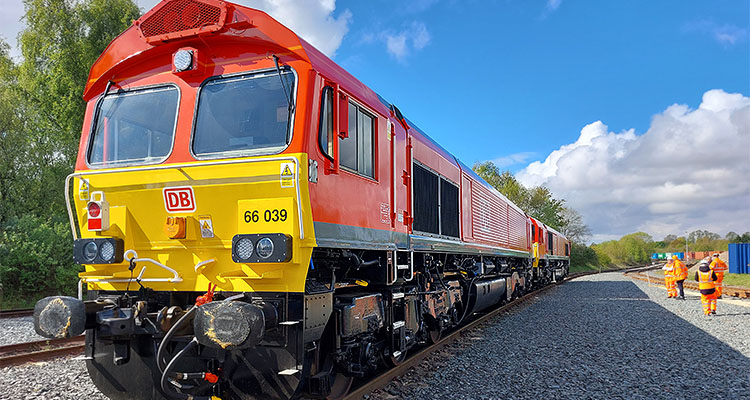DB Cargo, a leading freight transport provider in Europe, is revolutionizing the transport industry with sustainable rail solutions. One of its recent major advancements is the implementation of a comprehensive new operating system that optimizes processes and enhances flexibility and efficiency.
"The new system not only gives us a clearer understanding of operational efficiency, but also paves the way for strategic decisions based on real-time data, delivering clear value to our supply chain partners," said Neil Ethell, Chief Operating Officer of DB Cargo.
DB Cargo is also at the forefront of developing the European Train Control System (ETCS), particularly on its Class 66 locomotives. This is considered the biggest technological leap since the railway industry transitioned from steam to diesel engines.
"We are the first in the UK to implement ETCS on six locomotive classes, including Class 66 and 67. Once completed, this will become the standard ETCS installation on all Class 66/67 locomotives in the UK," Ethell said.
 |
Shifting freight from road to rail helps reduce traffic congestion and improve air quality. Photo: TLI Magazine |
Shifting freight from road to rail helps reduce traffic congestion and improve air quality. Photo: TLI Magazine
To prepare for this transition, the company has built three training centers with modern simulators to train drivers, engineers, and operational planning specialists. DB Cargo positions itself as a pioneer in the "transport for the environment" trend. Company leaders believe that freight should be transported by rail, considering it the most sustainable form of transport currently available, with significantly lower CO2 emissions than road transport.
By shifting freight from road to rail, DB Cargo contributes to reducing traffic congestion, improving air quality, and decreasing the number of trucks on the roads – a practical step towards a more sustainable logistics system.
DB Cargo aims to become the most profitable and environmentally friendly transport and logistics company in the United Kingdom. "With a diverse product portfolio and a comprehensive network of experts, we will serve the entire rail and transport sector in the coming period," Ethell affirmed.
The company is gradually reshaping the transport industry by combining the centuries-old tradition of rail with modern digital technology to not only transport goods, but also transport the future.
Founded in 2000, DB Cargo is one of the largest rail logistics operators in the UK. The company offers comprehensive solutions for its customers – from transport and warehousing management to operating logistics centers. This allows customers to use a single provider to transport goods from ports and hubs to destinations across the UK, on time and with minimal environmental impact.
"We were born out of the privatization of British Railways and have gone through several owners, from Wisconsin Central to Canadian National Railway. Now, DB Cargo is a strong member of the German Deutsche Bahn Group," said Ethell.
DB Cargo transports, loads, and stores a wide range of goods, from containers, steel coils, and construction materials to biomass and finished cars. Notably, the company also holds the Royal Warrant, a mark of official service to the British Royal Family. Beyond transport, DB Cargo is also a pioneer in rail engineering and maintenance, with strategic maintenance depots across the UK.
With a diverse service portfolio, DB Cargo operates in dozens of markets across Europe. "We transport everything from biomass to BBQ grills – from the UK all the way to Ukraine," Ethell shared. "As part of the DB Cargo network operating in 18 countries, we work closely with our sister companies to provide international logistics solutions for our customers."
DB Cargo plays a vital role in numerous industries, from infrastructure and steel production to fast-moving consumer goods and housing construction. At the same time, the company also maintains rail assets throughout the UK, with third-party maintenance services currently accounting for 15% of its total operations – a figure they expect to double in the near future.
Gia Han (From TLI Magazine)












